Inventor Nastran opens with the model tree collapsed
When you open Inventor Nastran now, the Model branch of the model tree is collapsed by default so it doesn't take up space in the browser and you can locate the Analysis branch easier. It also remains collapsed if you collapse it.
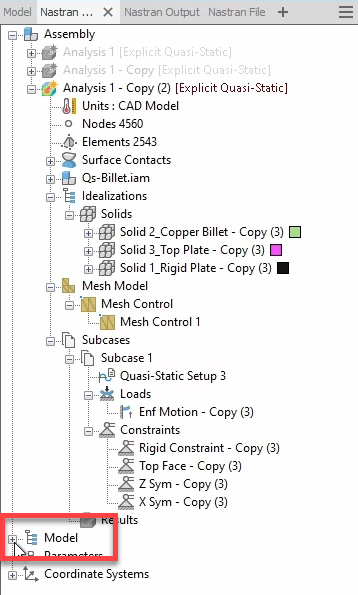
Changes in terminology for the default Model State and Design View
With Inventor Professional 2023 the default Model State and Design View naming is changed from Master to [Primary].
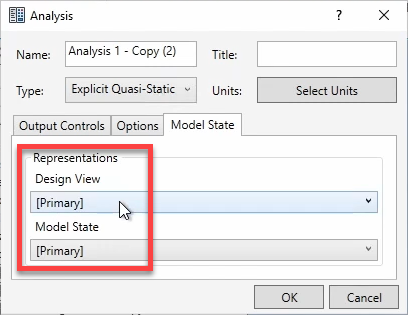
Heartbeat for Explicit Analysis
For Explicit Analysis, a new parameter called Heartbeat was added. It controls how often the analysis progress is written to the output file. The default Heartbeat interval is 50, so a line of text is written every 50 iterations.
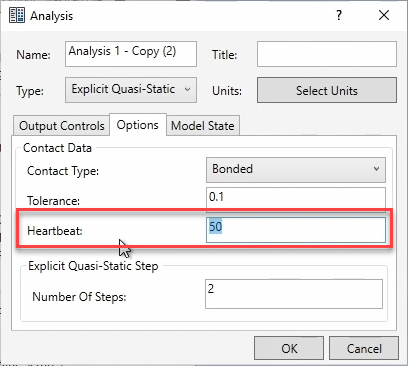
Combined Emissivity and Absorptivity in Radiation Load
The Load dialog for the Radiation type is modified and the Emissivity and Absorptivity options were combined into one option only to prevent incorrect results.
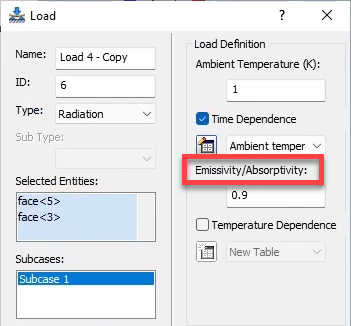
Unit display in the XY-plot
The XY Plots (graphs) now display the respective units for the X and Y components.
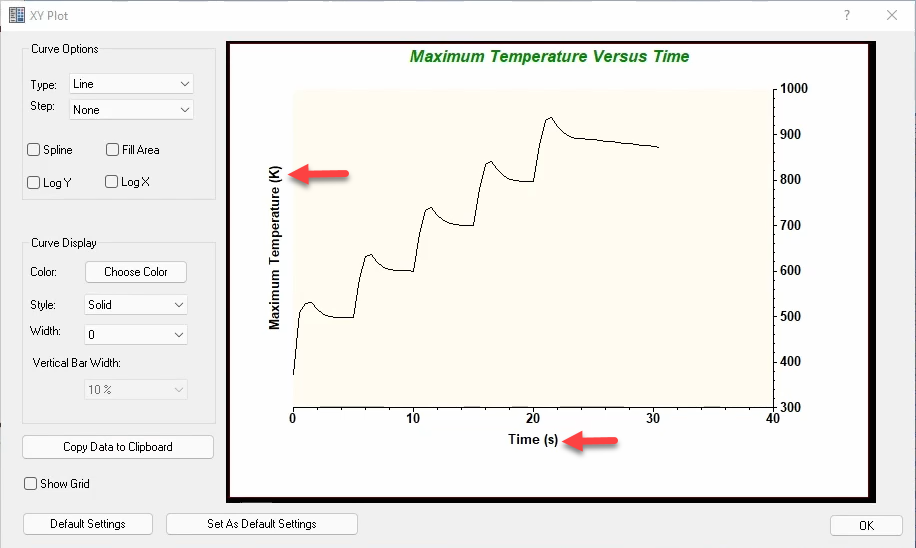
Analysis name displayed
After performing the Contour analysis, the analysis name now displays in the annotation. So now, when you perform multiple analysis and create an image of the result, it is easy to recognize which image belongs to which analysis.

Automated Concentrated mass support for solid bodies
You are now able to add Concentrated Mass to a solid body in a part file.
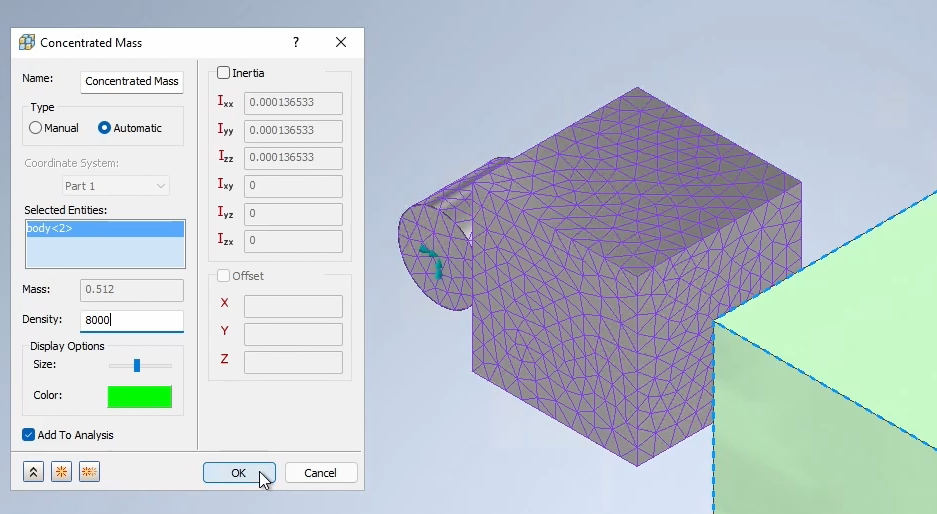
Stress-strain curve correction
Plastic materials require all slopes in the stress-strain curve to be less than the Young's modulus (except for the first 2 data points). When AUTOFIXNLMAT is set to ON, the solver removes any data points that violate this requirement.
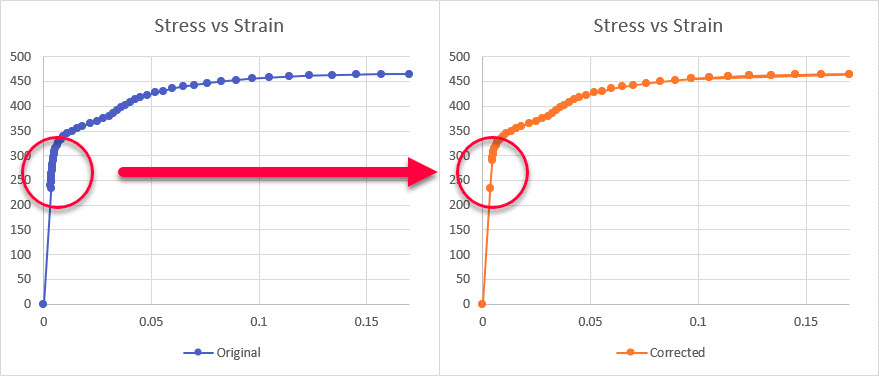
Improved Nonlinear Contact Performance
Nastran solver performance has been improved for nonlinear models with contact. Both the contact generation and solving phases have improved performance resulting in a 1.5x – 2x speedup on contact dominated models.
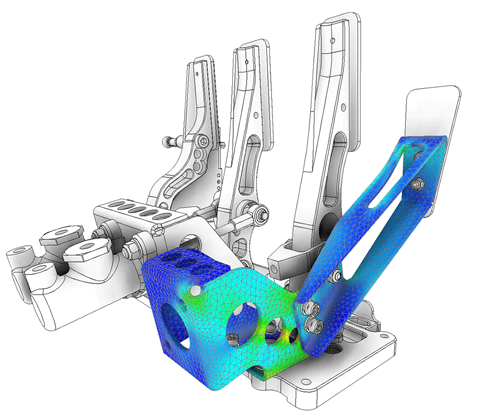
Contact Enhancements
Model size limit increased to 100,000,000 elements, allowing to run larger contact models.
Contact solving improvements increase performance for models with a large number of contact elements, and implemented new grid searching algorithm improving contact generation performance.